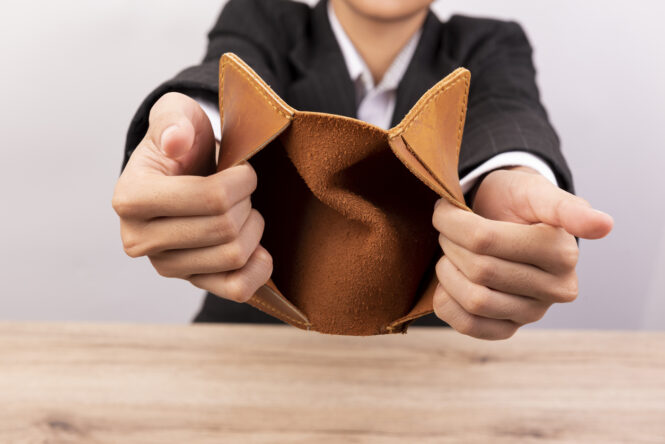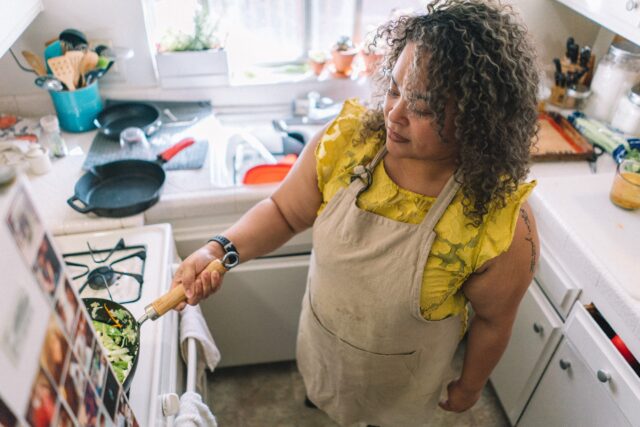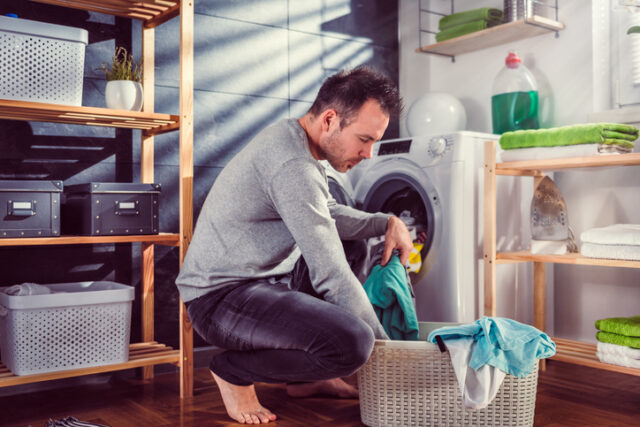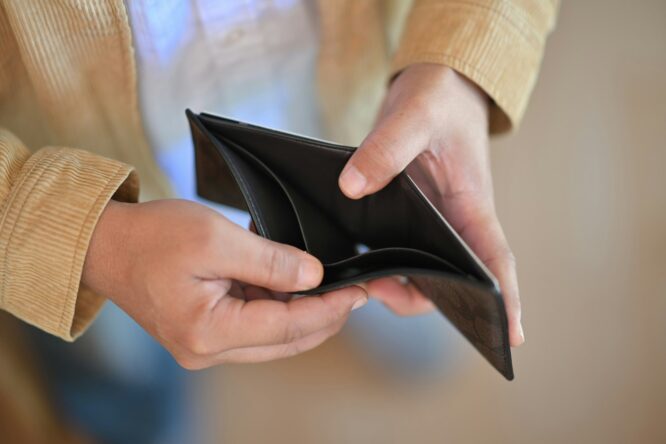We’re all guilty of some spending habits that seem pretty innocuous, but that slowly but surely drain our bank balance.

It’s not always the big purchases that do the damage. In fact, it’s usually the small, everyday things that don’t cost much in the moment but that still add up and take a chunk out of your finances. If your money always seems to be disappearing faster than you’d like, it could be because you’ve got yourself into some of these bad habits. While it’s not the end of the world, it’s still worth paying attention to, and maybe making some small tweaks.
1. Ordering takeaway just because you can’t be bothered to cook

We’ve all been there—long day, empty fridge, and the promise of a hot meal arriving at your door with minimal effort. The problem? Those lazy takeaways add up fast. What starts as a ‘just this once’ treat can quickly turn into a weekly (or nightly) expense that drains your budget without you realising it.
It’s not just the cost of the food, either. Delivery fees, service charges, and the temptation to add on an extra side or drink make it even worse. Before you know it, you’ve spent the equivalent of a week’s groceries on a couple of pizzas.
2. Subscribing to everything and forgetting to cancel

Streaming services, meal kits, beauty boxes, fitness apps—subscriptions are sneaky little money drains that quietly keep charging you long after you’ve stopped using them. It’s easy to forget about them when the payments are small, but they add up quickly.
Unless you’re actively using them, it’s worth going through your bank statements and cancelling anything that’s just sitting there eating up your cash. That £5.99 here and £12.99 there might not seem like much, but over a year, it’s a decent chunk of money.
3. Buying coffee every single morning

A fancy coffee here, a takeaway latte there—it doesn’t seem like much at the time. However, if you’re dropping £3-£5 on a coffee every morning, you’re easily spending over £1,000 a year on caffeine alone. Sure, you’re not going to get a house deposit from depriving yourself of your morning Costa latte, but you could probably think of better uses for the money.
It’s not about giving up coffee entirely, but investing in a decent coffee machine at home or bringing your own to work could save you a ridiculous amount of money. Your future self (and your bank account) will thank you.
4. Never checking your bank balance

Out of sight, out of mind might work for clutter in your house, but it’s a terrible approach to money. If you’re not keeping an eye on your bank balance, it’s easy to overspend without realising it. Checking your account regularly helps you spot unnecessary charges, forgotten subscriptions, and exactly where your money is going. It’s not the most exciting habit, but it can save you from financial surprises later.
5. Impulse buying because it’s “on sale”

There’s something about seeing a discount that makes our brains go, “Well, I’d be stupid not to buy it.” However, just because something is 30% off doesn’t mean you need it—or that you’re actually saving money. Sales are designed to make you spend more, not less. If you weren’t planning to buy it before, you’re not actually saving money—you’re just spending it on something you don’t need.
6. Letting food go to waste

Throwing out half of your fridge at the end of the week isn’t just bad for the environment—it’s bad for your wallet, too. If you’re regularly tossing out forgotten leftovers, unused veg, or expired groceries, you’re literally throwing money away.
Planning meals, using up what you already have, and freezing leftovers can help cut down on waste and save you a surprising amount of cash over time.
7. Upgrading your phone when you don’t need to

Phone companies are masters at convincing us we need the latest model, but unless your current phone is on its last legs, upgrading every year is an unnecessary expense. If your phone still works fine, keeping it for an extra year or two could save you hundreds. If you really want an upgrade, consider buying a refurbished one instead of paying full price.
8. Forgetting to compare prices on big purchases

Whether it’s insurance, flights, a new laptop, or even your weekly shop, failing to shop around means you’re probably spending more than you need to. Companies rely on people being too lazy to check for better deals. A few extra minutes of research could save you a decent chunk of money, and with comparison sites making it easier than ever, there’s no excuse not to.
9. Shopping when you’re bored

Ever find yourself scrolling through online shops just because you’ve got nothing else to do? That’s how you end up with a wardrobe full of things you don’t wear and an account balance that’s mysteriously lower than expected. If you’re someone who shops for fun, try swapping it for something that doesn’t involve spending money, like going for a walk, reading, or even just reorganising what you already own.
10. Choosing convenience over cost every time

From buying pre-cut fruit to paying for premium delivery just to get something a day sooner, convenience often comes with a price tag. While it’s fine to pay for ease now and then, making a habit of it will drain your wallet fast. Next time, ask yourself if the convenience is really worth the extra cash, or if a little patience and effort could save you money.
11. Not setting spending limits on nights out

You start the night planning to have “just a couple of drinks,” and next thing you know, you’ve spent half your week’s budget on rounds, late-night food, and an Uber home. Nights out are fun, but they can get expensive fast if you’re not keeping track. Setting a limit (and sticking to it) means you can enjoy yourself without waking up to a financial hangover the next day.
12. Buying cheap things that don’t last

Bargain shopping feels great at the moment, but constantly replacing low-quality items ends up costing more in the long run. Whether it’s clothes, electronics, or home essentials, sometimes it’s worth spending a little more for something that will actually last. That £10 pair of shoes might seem like a steal, but if you have to replace them every few months, you’re not actually saving money; you’re just spending it in smaller chunks.
13. Never bringing your own snacks

Snacking on the go might not seem like a big expense, but those little purchases add up fast. Whether it’s a quick coffee, a packet of crisps, or a last-minute sandwich, you could be spending way more than necessary just because you weren’t prepared. Keeping snacks in your bag, car, or desk drawer means you won’t have to fork out extra cash every time hunger strikes.
14. Ignoring small fees because they seem insignificant

Late payment charges, ATM withdrawal fees, transaction fees on holiday—these tiny charges might seem minor, but they add up quickly. Banks and companies rely on people not paying attention to them. Avoiding unnecessary fees by being a little more mindful of where and how you spend can save you a surprising amount over time.
Spending money isn’t a bad thing, but when small habits start draining your cash without you realising it, it’s worth taking more of a look. A few simple changes could mean more money in your pocket, and fewer moments of wondering where it all went!




